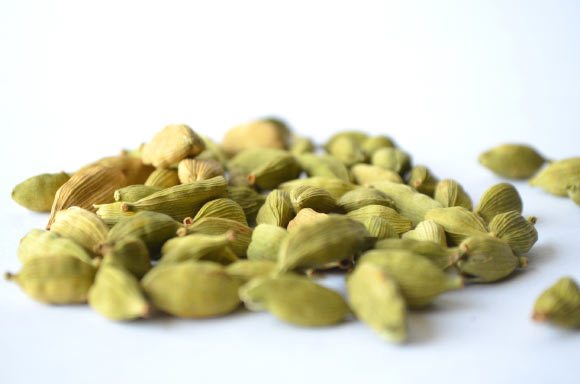Cardamom seed (Elettaria cardamomum) is consumed in several countries worldwide and is considered a nutraceutical spice since it exerts antioxidant, anti-inflammatory, and metabolic activities. In obese individuals, cardamom intake also favors weight loss. However, the mechanism for these effects is unclear. In a new study, scientists identified that cardamom modulates the neuroendocrine axis that regulates food intake, body weight, mitochondrial activity, and energy expenditure in mice.

Delgadillo-Puga et al. show cardamom could be a healthy dietary choice, and that its consumption can help maintain lean body weight and reduce fat. Image credit: PDPics.
Cardamom is known as the ‘queen of spices’ because of its delightful aroma, adaptable flavoring for a great variety of foods and beverages, and its purported beneficial health effects.
Cardamom seed is considered a nutraceutical spice, since it contains several phenolic compounds and terpenoids that exert beneficial mood/behavioral and metabolic effects.
“Cardamom is a spice little known in the U.S. but very common in other parts of the world,” said senior author Professor Luis Cisneros-Zevallos, a researcher at Texas A&M University.
“What we found is that this small spice can burn calories and maintain body weight while increasing appetite and food consumption.”
Professor Cisneros-Zevallos and his colleagues conducted the study using live animal specimens and applied various doses of cardamom seeds in a regular diet.
They found that cardamom increases appetite but also increases energy expenditure and fat mass reduction.
The study also provided estimated dosages for humans — at least 77 milligrams of cardamom bioactives for an adult around 60 kg.
It stated this beneficial dose may be obtained from consuming at least 8 to 10 cardamom pods every day.
The study confirmed cardamom modulates neural circuits that regulate adipose tissue lipolysis and mitochondrial oxidative metabolism in liver and skeletal muscle.
“Other related studies have shown cardamom has anti-inflammatory properties,” Professor Cisneros-Zevallos said.
“Our research indicates that cardamom may reduce low-grade inflammation that can lead to chronic inflammation and the development of a range of diseases.”
“Our team has discovered an amazing opportunity to utilize cardamom as a promoter of overall health.”
“Cardamom seeds, with this new functionality, can be used in different industries, including the sports industry, functional foods and dietary supplements to favor the production of healthier foods.”
The results were published in the International Journal of Molecular Sciences.
_____
Claudia Delgadillo-Puga et al. 2023. Cardamom (Elettaria cardamomum (L.) Maton) Seeds Intake Increases Energy Expenditure and Reduces Fat Mass in Mice by Modulating Neural Circuits That Regulate Adipose Tissue Lipolysis and Mitochondrial Oxidative Metabolism in Liver and Skeletal Muscle. Int. J. Mol. Sci 24 (4): 3909; doi: 10.3390/ijms24043909







